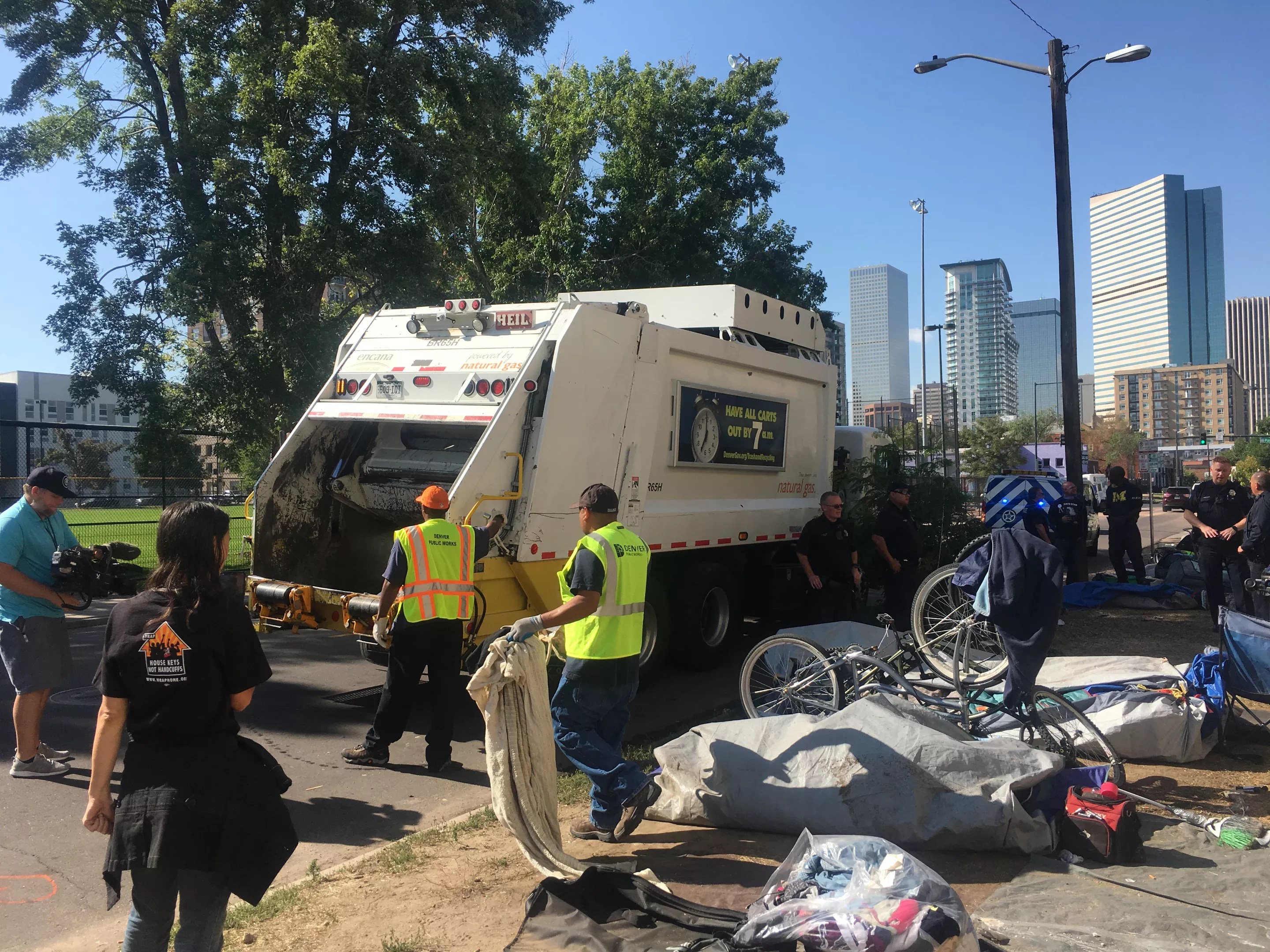
Sara Fleming

Audio By Carbonatix
The Denver camping ban is constitutional, a Denver District Court judge ruled on September 3 in a decision that reverses a lower court ruling from last December. However, the matter isn’t settled just yet.
“Obviously, we think that the lower court was right and this appellate decision is wrong,” says Andy McNulty, an attorney from Killmer, Lane & Newman who has been battling the city in court. “The camping ban is cruel and unusual punishment. You don’t need a court to tell you that, but the lower court held as much. We’ll be taking an appeal to the Colorado Supreme Court to have them answer that question once and for all.”
That appeal could kick the final resolution of this case a year or two down the road. In the meantime, the camping ban, which the City of Denver recently started re-enforcing after taking a break for much of 2020, will remain on the books.
The September 3 ruling by Denver District Court Judge J. Eric Elliff reversed the December 2019 decision by now-retired Denver County Court Judge Johnny Barajas, who determined that the city’s camping ban violated the Eighth Amendment’s prohibition on cruel and unusual punishment. That determination was part of Barajas’s ruling in favor of a motion to dismiss by Jerry Burton, a homeless man and activist who was ticketed for violating the camping ban.
In his ruling, the judge opined that the camping ban, which prohibits homeless individuals from sheltering outdoors using tents or sleeping bags, is “facially unconstitutional,” meaning that it violated the Eighth Amendment as written, rather than simply as applied in specific circumstances. In making that determination, Judge Barajas threw out the entire ordinance approved by Denver City Council and signed into law by Mayor Michael Hancock in 2012.
The city appealed Barajas’s ruling, and Elliff ultimately agreed with the argument put forth by Denver’s attorneys, finding that the camping ban is both facially constitutional and constitutional as applied in certain circumstances.
One of the key tenets of the Eighth Amendment, according to Elliff, is that it “imposes substantive limits on what can be made criminal and punished.”
Burton and McNulty maintained that “the Ordinance unconstitutionally punishes [Burton’s] status as a homeless individual,” Elliff’s ruling notes. However, it continues, “the Ordinance facially applies to anyone, homeless or not, who might decide to camp on public property within the City and County of Denver.”
As a result, Elliff said, the ordinance “does not criminalize status. It criminalizes an activity.” And so he rejected Barajas’s ruling that the ordinance was facially unconstitutional.
Elliff also concluded that the camping ban is constitutional as applied to Burton’s case.
“Defendant was homeless when he was camping on public property. He was contacted by police and given the option of going to a homeless shelter. It was only after he refused shelter that he received a citation for violation of the Ordinance. In its enforcement of the Ordinance, the City was not motivated by a discriminatory purpose nor a desire to harm a ‘politically unpopular group,’ and thus there was no ‘animus’ on the part of the City. The City does not have a custom and practice of arresting, harassing and otherwise interfering with homeless people for engaging in basic activities of daily life,” Elliff wrote.
McNulty says he will likely file a notice of appeal in the coming weeks.
“This fight isn’t over, and again, we don’t need a court to tell us that the camping ban is cruel and unusual punishment,” he explains. “It just is, and we will continue to fight to get a ruling from the higher court that comports with the lived reality of the folks that live on the streets.”
“The City very intentionally drafted its Unauthorized Camping Ordinance (UCO) to recognize the needs of all Denver residents and the special circumstances of those experiencing homelessness. We have implemented a humane and compassionate approach to enforcement. Our priority is to get resources and shelter to those who need it. Judge Elliff’s Colorado District Court appellate ruling last week confirmed that Denver’s UCO is indeed constitutional,” says Ryan Luby, spokesperson for the Denver City Attorney’s Office. “The now-reversed Denver County Court ruling on Mr. Burton’s case did not overturn Denver’s UCO nor prohibit enforcement of it. The ruling came from a single criminal case, which will now be remanded to Denver County Court for further action.”
Aside from this ongoing court battle, the camping ban has faced two other significant, albeit unsuccessful, challenges. In May 2019, Denver voters rejected a ballot initiative that sought to overturn laws that advocates saw as criminalizing homelessness, including the camping ban. And earlier this year, lawmakers from metro Denver in the Colorado Legislature introduced a bill that would have weakened camping bans across the state. That proposal failed to make it out of committee.